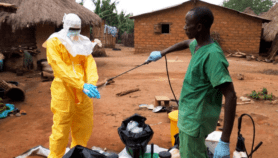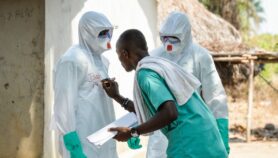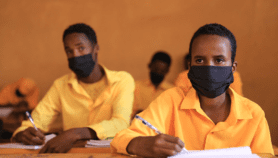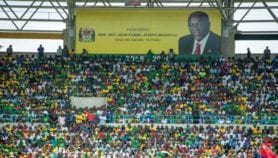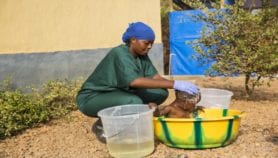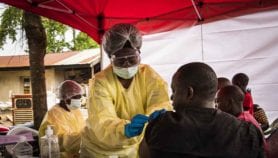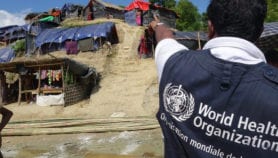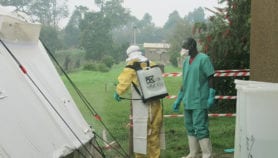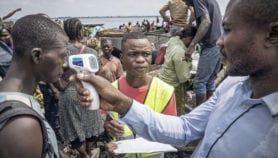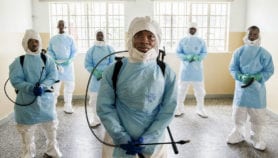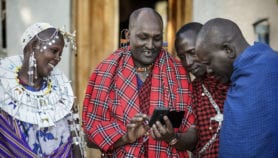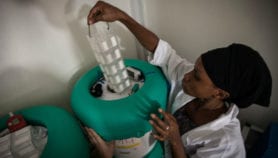28/06/19
Ebola preparedness at risk due to inadequate funding
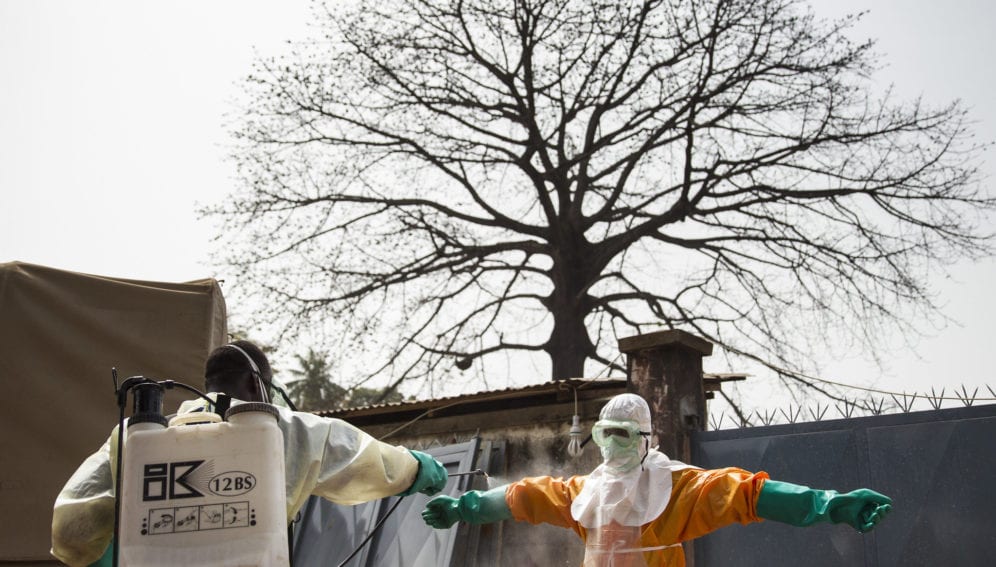
By: Gilbert Nakweya
Send to a friend
The details you provide on this page will not be used to send unsolicited email, and will not be sold to a 3rd party. See privacy policy.
[NAIROBI] Inadequate funding for Ebola preparedness puts countries bordering the Democratic Republic of Congo at risk and jeopardises efforts to manage the spread of the outbreak in the region, says the WHO.
Issuing an Ebola preparedness alert to the media in Kenya last week Friday (21 June), experts from the WHO working in the region said that although the Ebola outbreak in the Democratic Republic of Congo is not a global emergency, it is a serious issue of global concern.
“Despite the crucial nature of Ebola preparedness funding, we are regretting the fact that funding for this aspect of the work has slowed down.”
Matshidiso Moeti, WHO Regional Office for Africa
“Despite the crucial nature of Ebola preparedness funding, we are regretting the fact that funding for this aspect of the work has slowed down,” says Matshidiso Moeti, the WHO regional director for Africa.
Moeti tells SciDev.Net that inadequate funding has “reached a crucial juncture”.
The current Ebola disease outbreak in the Democratic Republic of Congo is the 10th in the country and was reported early August last year. According to the WHO, as of Friday last week, 2,204 cases had been confirmed with 1,479 deaths.
Experts say that priority countries for preparedness include Angola, Burundi, Central African Republic, South Sudan, Rwanda, Tanzania, Uganda and Zambia.
But Moeti explains that the WHO and partners have a 40 per cent funding gap for continuing the Ebola preparedness in the neighbouring countries.
Moeti emphasises that the Emergency Committee on the Ebola Outbreak in the Democratic Republic of the Congo is disappointed that the WHO and the affected countries are lacking adequate funding and resources needed for fighting the outbreak.
According to the experts, the goal of the preparedness work is “to ensure that countries have put in place systems which allow them to detect, investigate, and report potential Ebola cases, as well as treat any confirmed cases”.
This also involves screening of travellers at national and international borders which helps in detection of cases and having a working alert system.
Zabulon Yoti, WHO regional emergencies director in Africa, says that the handling of cases reported in Uganda have demonstrated that preparedness is instrumental in containing Ebola spread.
In Uganda, three cases of Ebola that had been reported in the country early this month have been confirmed dead, according to the WHO.
Yoti said that community-based surveillance system will be critical in response efforts.
“We are now following contacts in Uganda and vaccinating them,” says Yoti. “We want to ensure that we have no new cases.”
According to Yoti, the WHO and the Ministry of Health in Uganda have listed over 100 contacts from the three cases and vaccinated over 400 people who were in contact with the 100.“Investment in preparedness is paying back,” says Yoti, adding that there is a need for a government-led coordination to control the outbreak.
But Omu Anzala, director of the University of Nairobi’s KAVI-Institute of Clinical Research, says that the biggest challenge in managing the Ebola outbreak in the Democratic Republic of Congo is that of insecurity.
“We need to contain the virus within the Democratic Republic of Congo and with time it will be prevented,” says Anzala asking countries within the region to be alert.
Anzala, who is also a professor of virology and immunology, asks countries to set aside their own funds and “not expect any funds from the WHO”.
This piece was produced by SciDev.Net’s Sub-Saharan Africa English desk.


